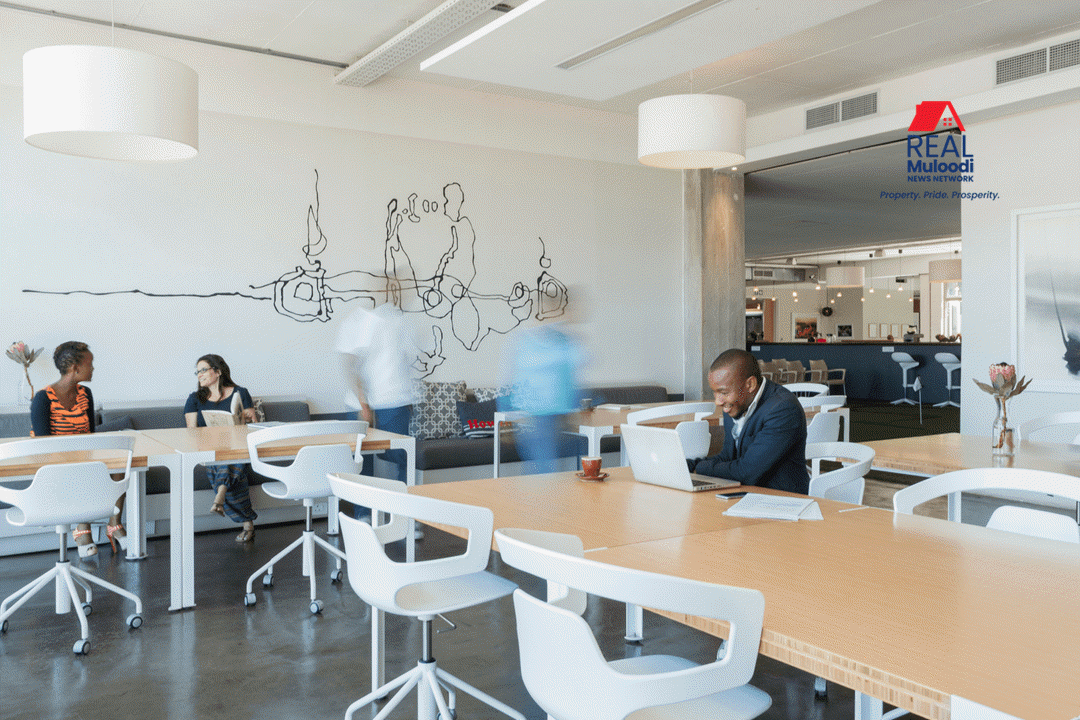UGANDA, Kampala | Real Muloodi News | Jess Cleland, Chief Operating Officer at Broll Property Group, is urging real estate businesses to move from a pure rental income-producing led business model to a service-oriented model. She made the remarks at the Real Estate Experience (RE: X) Africa conference last month.
According to Cleland, we are witnessing a breakdown in the delineation between work and home spaces, accelerated by the pandemic. Lockdowns demonstrated that many workers could do their jobs at home. As a result, many companies are now shifting to hybrid working; a mixing of remote and office work, to reduce office space and accommodate employees’ desire for flexibility.
A shift is also occurring within other sectors, like healthcare, which is moving from traditional institutional care to community-based care.
To support these consumer trends, real estate must become more flexible and accessible, according to Cleland.
Stakeholders need to reimagine the importance of the bundle of services that real estate can enable, rather than only treating it as a physical wrapper of bricks and mortar.
“Although real estate itself is a physical product, the use of real estate is an experience. This means that how we deliver and utilise real estate is rapidly evolving away from an ownership model and more towards a consumption model,” says Cleland.
Her opening message, “Real Estate as a Facility,” emphasized that consumers need more than just a room; they need an ecosystem of services in an area.
Similarly, there is a shift in the way real estate is packaged, distributed, and used. It’s no longer about ownership. It’s about getting access to utility with the added advantage of versatility. This versatility can be brought about by reduced entry barriers and the ability to scale up or down more efficiently based on needs.
What Jess Cleland Means by a Service-oriented Future?
“What we are adapting to, in a relatively short period of time, is embracing an ecosystem of services in a variety of locations and experiences. This is blurring the lines between work, home, play and learning, and is being enabled by technology as a catalyst, which often acts as a marketplace connector,” says Cleland.
To support her presentation, Cleland presented an array of research conducted by Broll Property Group’s global partner, Cushman & Wakefield. The presentation centred on the needs of people currently seeking a more shared economy in which co-living, co-working, and hybrid working arrangements are rapidly replacing conventional real estate use.
Cleland says: “People are seeking an interconnectedness of services, where they can tap into the range of experiences they wish to have. This means that this industry must become more flexible and accessible,” according to the property expert.
Cleland cited pop-up office pods that can be leased by the minute, and cloud kitchens that distribute food as examples of new global developments. There is senior housing in which medical and social care facilities are bundled into an estate kit.
“This means that the barriers to entry in real estate are being broken down and manifesting improvements to economic and social effectiveness,” Cleland says.
Further more, she clarifies that, “The question is no longer about what physical space people need, but what enabling environment will support their best performance.” All stakeholders must think carefully about what they need to succeed in this new world.”
READ MORE LIKE THIS:
Why the Slow Adaptation to Real Estate Technology in Uganda?



